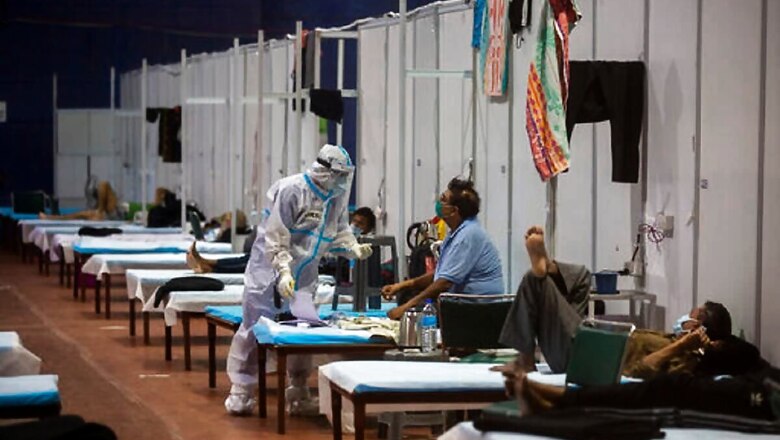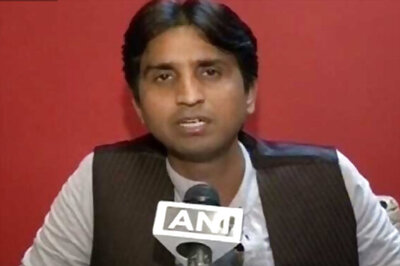
views
As the work continues to develop an effective vaccine for COVID-19, the government on Saturday said two pan-India studies on the genome of the virus in India suggest it is genetically stable and has shown no major mutation.
There had been concerns in some quarters that any major mutation detected in the novel coronavirus could hinder the development of an effective vaccine. However, some recent global studies have said the vaccines currently being developed for COVID-19 should not be affected by recent mutations.
Mutation typically refers to the property of a virus to undergo changes when it multiplies and the virus may develop some new strains after it replicates. In cases, the new strains tend to be less effective and therefore die out soon, while more powerful strains may lead to faster spread of the virus.
After a review meeting chaired by Prime Minister Narendra Modi on the COVID-19 pandemic situation, and vaccine delivery, distribution and administration preparedness, the Prime Minister's Office said in a statement that three vaccines are in advanced stages of development in India, out of which two are in Phase II and one is in Phase-III.
The PMO further said, "Two pan-India studies on the Genome of SARS-CoV-2 (COVID-19 virus) in India conducted by ICMR and the Department of Biotechnology (DBT) suggest that the virus is genetically stable and there is no major mutation in the virus." Last month, Union Health Minister Harsh Vardhan had said no significant or drastic mutations have been found in strains of SARS-CoV-2 in India till now.
He had also said the ICMR (Indian Council of Medical Research) was conducting large-scale sequencing of nationally representative strains collected over a few months and detailed results on mutations of the virus will be available in early October.
Replying to a query on mutations of SARS-COV2, ICMR Director-General Dr Balram Bhargava had said at a press briefing earlier this week that minor changes called "drifts" may happen from time to time, but major genetic mutations of viruses or "shifts" may happen in about a decade or two. In this context, the effectiveness of a vaccine will not be determined by minor "drifts", he had said.
A study by a group of researchers last month found that the coronavirus genomes in India have 5.39 per cent mutation similarity with 72 nations. Mutations in an organism's genetic material are natural 'errors' in the cell replication process that may give the virus new 'powers' of survival, infectivity, and virulence. It can affect the ability of vaccines and drugs to bind the virus or to create a specific immune response against it.
The study also revealed that the US, the UK and India are the top three nations with a geometric mean of 3.27 per cent, 3.59 per cent, and 5.39 per cent, respectively, of mutation similarity score with other 72 countries. Indrajit Saha, an assistant professor in the Department of Computer Science and Engineering of National Institute of Technical Teachers' Training and Research, Kolkata, and his team have also developed a web-based COVID-Predictor to predict the sequence of viruses online on the basis of machine learning.
The PMO statement said a National Expert Group on Vaccine Administration for COVID-19 (NEGVAC) in consultation with state governments and all relevant stakeholders have prepared a detailed blueprint of vaccine storage, distribution, and administration.
The Expert Group, in consultation with states, is working actively on prioritisation and distribution of vaccines. At the meeting, the prime minister directed that keeping in view the geographical span and diversity of the country, the access to the vaccine should be ensured speedily.
Modi stressed that every step in the logistics, delivery, and administration should be put in place rigorously and it must include advanced planning of cold storage chains, distribution network, monitoring mechanism, advance assessment, and preparation of ancillary equipment required, such as vails, syringes, etc.
.
Read all the Latest News and Breaking News here




















Comments
0 comment